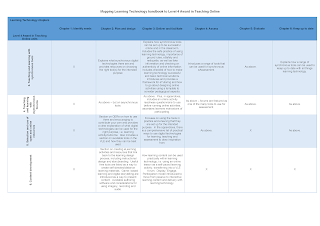Explaining to understand
1. Write the concept down (digital or paper)
- Choose the concept I want to understand
- Ask myself what is my point and ask others the right questions
2. Explain the concept using simple language – underline, work through examples
- Teach it to someone, i.e. a child
3. Identify problem areas, then go back to the sources to review
- Go back to studying it and re-learn the parts where I am lacking in knowledge
- Before going into Step 4: frame my mind – how would I explain it to a child or adult? Remember, children always ask why…
4. Pinpoint any complicated terms and challenge yourself to simplify them
- Simplify language
- Confirm with people what I am saying makes sense. Paraphrase during conversations
- Think of topics I don’t understand and explain to myself first before speaking to others. Work on the parts that seem vague. It all leads to explaining the same thing in different ways
- In meeting and conversations, ask to meet afterwards to go through in more detail and in a more safer and personal environment
Maybe I need to look for trends and patterns in when I do good things certain things happen or when I do not good things, this happens etc. This article 'Nuts and Bolts: Learning from Your Own Work' may be a good start.
A visual doer
I am a visual learner as well as a learn by doing. I tend to visualise concepts and creativity before I can describe them. As for experiential learning, take cooking for example. I'm not gifted with the enthusiasm for it, plus I can't read a recipe and cook. 😜 I need to watch someone do it or do it with. I think that's why I am very keen to collaborate with others as it's joint/doing. Moreover, as with teaching, presenting and public speaking, doing these makes me learn more as I have to explain to others as well as not looking an idiot.
In my work, I notice that I prefer stuff that is easy to digest and in an accessible writing style and format, i.e. Ann Gravells, Geoff Petty, Gilly Salmon, Michael Sankey etc. Their analyses and processes they publish are in line with my views/thinking. They really help me when trying to explain concepts and align my own thinking to them. Some things to develop onwards:
- Improve active listening - paraphrasing helps
- Structuring my thoughts - Pyramid Principle, plus talking about stuff like I do throughout this blog
- In staff development training sessions - ask more open questions:
- What questions do you have?
- Why and when would you use this?
- How you would use it?
- Can you remember how to do this?
- What value does this bring? Etc...






